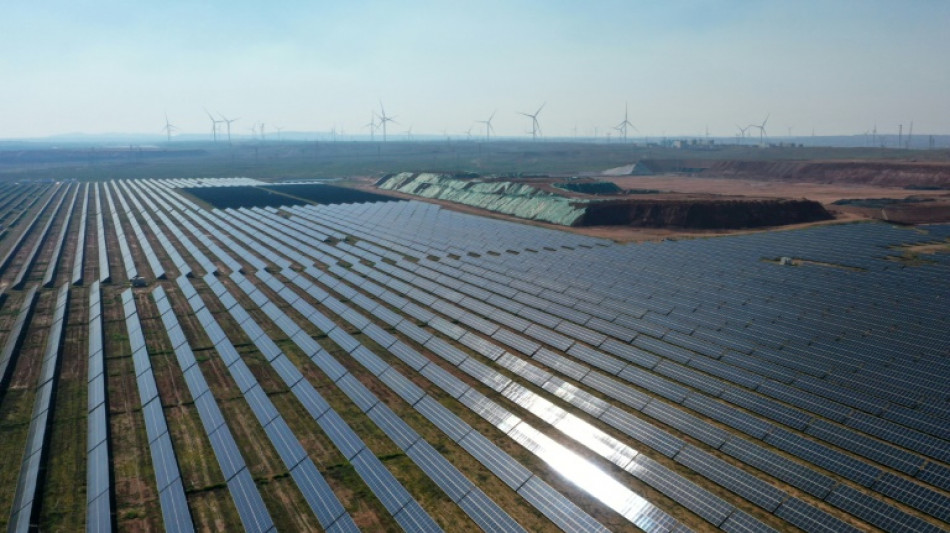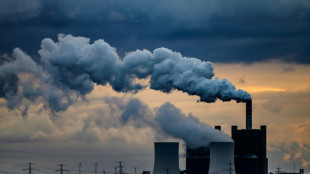

Quarter of China's energy now comes from non-carbon sources: white paper
A quarter of all the energy China consumes now comes from non-carbon sources, according to research published Thursday, as Beijing rapidly pivots its huge economy to a greener footing.
The country is the world's largest emitter of greenhouse gases, though has in recent years emerged as a global leader in renewable energy.
It has pledged to bring its emissions of planet-warming carbon dioxide to a peak by 2030 and to net zero by 2060.
A white paper published Thursday said the proportion of "clean energy" in total national consumption rose from 15.5 percent to 26.4 percent over the past decade, according to state news agency Xinhua. This also includes nuclear energy, according to the paper.
By the end of 2023, China's cumulative installed capacities of wind and solar power had increased elevenfold over the past decade, it added.
It said China was responsible for more than 40 percent of annual additions to global renewable energy capacity since 2013.
"China has... achieved historic breakthroughs in green and low-carbon energy development," the white paper said.
Under the Paris climate accord, countries have pledged to cut greenhouse gas emissions with a view to keeping global temperature rises below 1.5 Celsius above pre-industrial levels.
China has won plaudits for its efforts to rapidly ditch polluting energy sources such as coal, but has also resisted calls to act even more ambitiously.
Last week, its wind and solar capacity overshot a target set by President Xi Jinping nearly six years ahead of schedule.
Mismatched development in the country's renewables sector also means a significant amount of energy gets wasted, while turbulence in the domestic solar industry has pushed some firms into dire financial straits.
- 'Uncertain factors' -
China has the ability and is confident that it can achieve its goal of hitting peak carbon emissions before 2030, said Song Wen, head of law and institutional reform at the National Energy Administration.
But domestic energy demand is growing and "unpredictable and uncertain factors are increasing", Song said at a news briefing to mark the release of the white paper.
While renewables are making up an increasing share of China’s energy consumption, rising demand means that coal use and emissions are still on the rise.
"We must note that China is still a developing country, and we are advancing modernisation for a huge population," Song said.
"Huge efforts" are needed to achieve the goal of peak carbon and carbon neutrality, she added.
The white paper also rejected "all forms of decoupling" and any "severing of industrial and supply chains".
The United States and European Union have expressed concern that a surge of low-cost Chinese exports fuelled by Chinese government support in key sectors like solar and electric vehicles may pose a risk to global markets.
China has pushed back against these concerns, calling them "groundless".
"As a firm advocate of true multilateralism, China opposes all forms of unilateralism and protectionism," the white paper said.
N.Behan--IP




